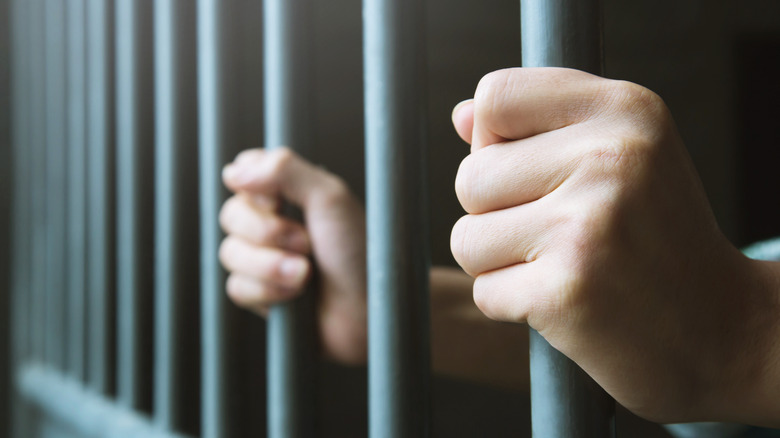The Sad Story Of Andreas Mihavecz And His Guinness World Record
A healthy human body can survive up to 21 days without food — and much shorter without water — but there have been some notable exceptions. Andreas Mihavecz, unfortunately, had to learn the limits of his body by accident. In 1979, the then-18-year-old Mihavecz was put in police custody by mistake. He'd been a passenger in a car accident but was not responsible for the crash, per performance-athlete site, Precision Hydration. Police placed Mihavecz in a basement cell and then ... simply forgot about him. Reportedly, each of the three officers who'd been involved in his arrest all thought another had released him. Mihavecz survived by licking condensation off the prison walls so — as a record — this one's a little bit shaky. We'll let it slide though because there's no way those basement walls could have sated much thirst at all.
The Austrian teenager was found near-death and some reports indicate he may have lost 53 pounds during his 18 days in the basement, and it took him many weeks to recover (per Opera News). According to Guinness World Records, Mihavecz holds the "longest survival without food and water" title. We're guessing he'd prefer to have not won it in the first place.
Hunger strike strategies have informed what we know about deprivation
But what really happens to the human body during a long period of starvation? According to Medical News Today, when a person stops eating, the body uses its own tissue as fuel, but it only works for a limited time. Several factors influence how long a person can survive while starving, including body size and health. However, things change when it comes to water.
Mahatma Gandhi used hunger strikes as a way to protest British rule through non-violent means. His longest lasted 21 days but he survived by having some occasional sips of water (via CBC). In 1981, Bobby Sands died of starvation after 66 days on a hunger strike. During that period, he tried to keep hydrated by drinking water every day, according to Irish America.
During hunger strikes, people are often still drinking water, since it's crucial for survival. In general, a person can survive generally only three days without water, Medical News Today reports.

